
Make your way around Lehigh County, PA
As part of the America 250 celebration in 2026, Lehigh County, PA has curated a "treasure trail" to highlight Lehigh County’s rich past. Track the footsteps of early settlers, explore Revolutionary-era landmarks like Trout Hall in Allentown or ride along the Ironton Rail Trail, once a vital railroad corridor, now transformed into a thriving 9-mile recreational path. These aren't just locations from the past, make stops at Coca-Cola Park, home to the Lehigh Valley IronPigs.
Lehigh County Treasure Trail Map
George Taylor House
(35 S Front St, Catasauqua)This historic house was built for George Taylor in 1768 by the Carpenters’ Company of Philadelphia. It is the only home he commissioned and built, and was designated a National Historic Landmark in 1971. In 1776, Taylor joined the Second Continental Congress and advocated for the independence of the United States from Great Britain. On July 4, 1776, Taylor became the only person from the Lehigh Valley to sign the Declaration of Independence. Taylor died in Easton in 1781 at age 65 and is buried in Historic Easton Cemetery.
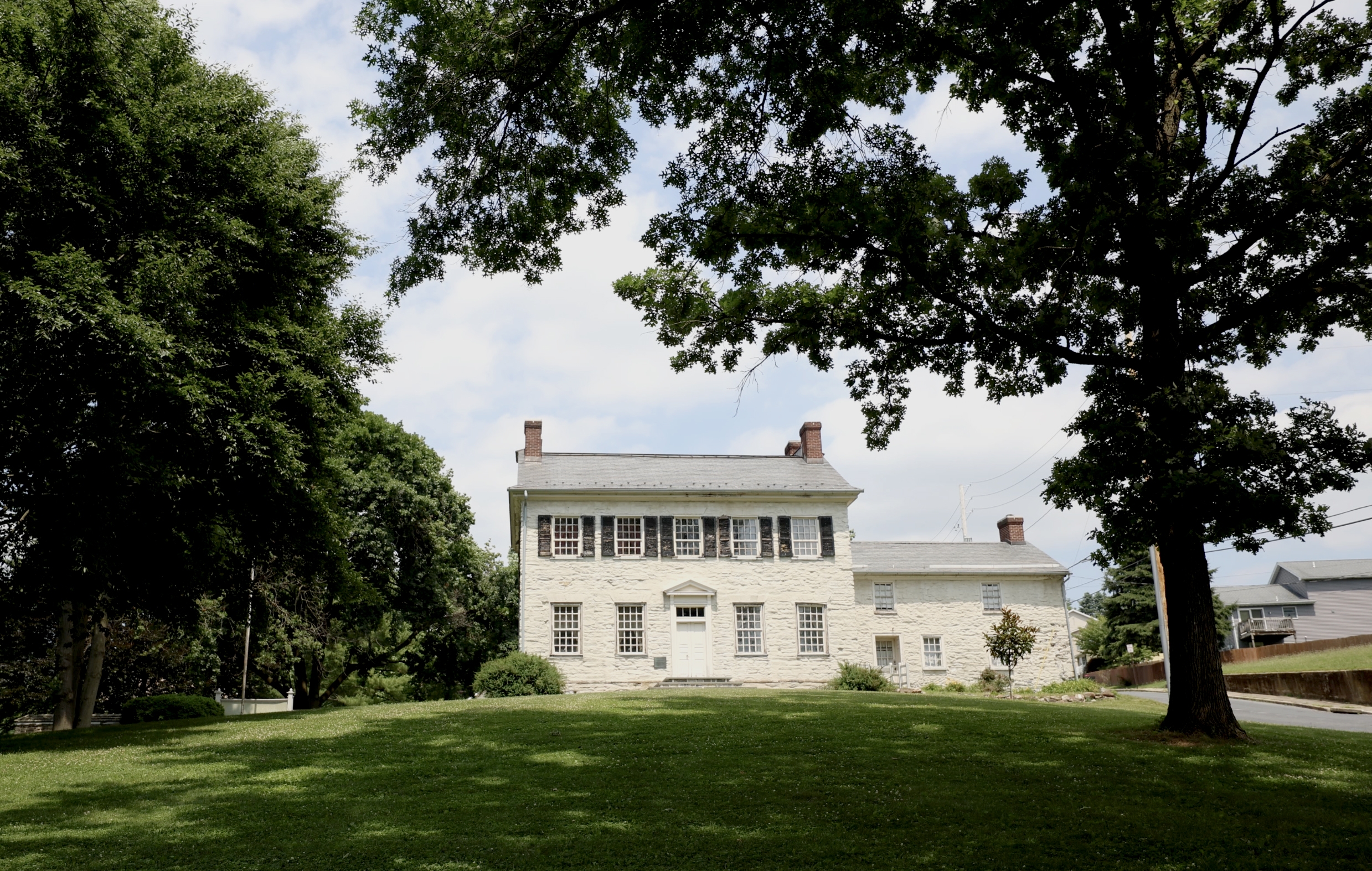
America 250PA Semiquincentennial Bell Site
(622 W. Hamilton Street, Allentown)
In September 1777, the British Army won a series of battles on the outskirts of Philadelphia, and it became clear that the British would occupy the city. To prevent the State Bell, which decades later would become known as the Liberty Bell for its role as a symbol of the abolition movement, from falling into British hands, the decision was made to move it and a number of other large bells out of Philadelphia. The wagon train passed through Bethlehem on its way to Northampton Town, known now as Allentown. Once in Allentown, the bell was hidden under the floorboards of the High German Evangelical Reformed Church, often referred to as Zion Reformed Church. The bell remained for nine months until, in June 1778, the bell was once again moved, this time back to its home in Philadelphia.
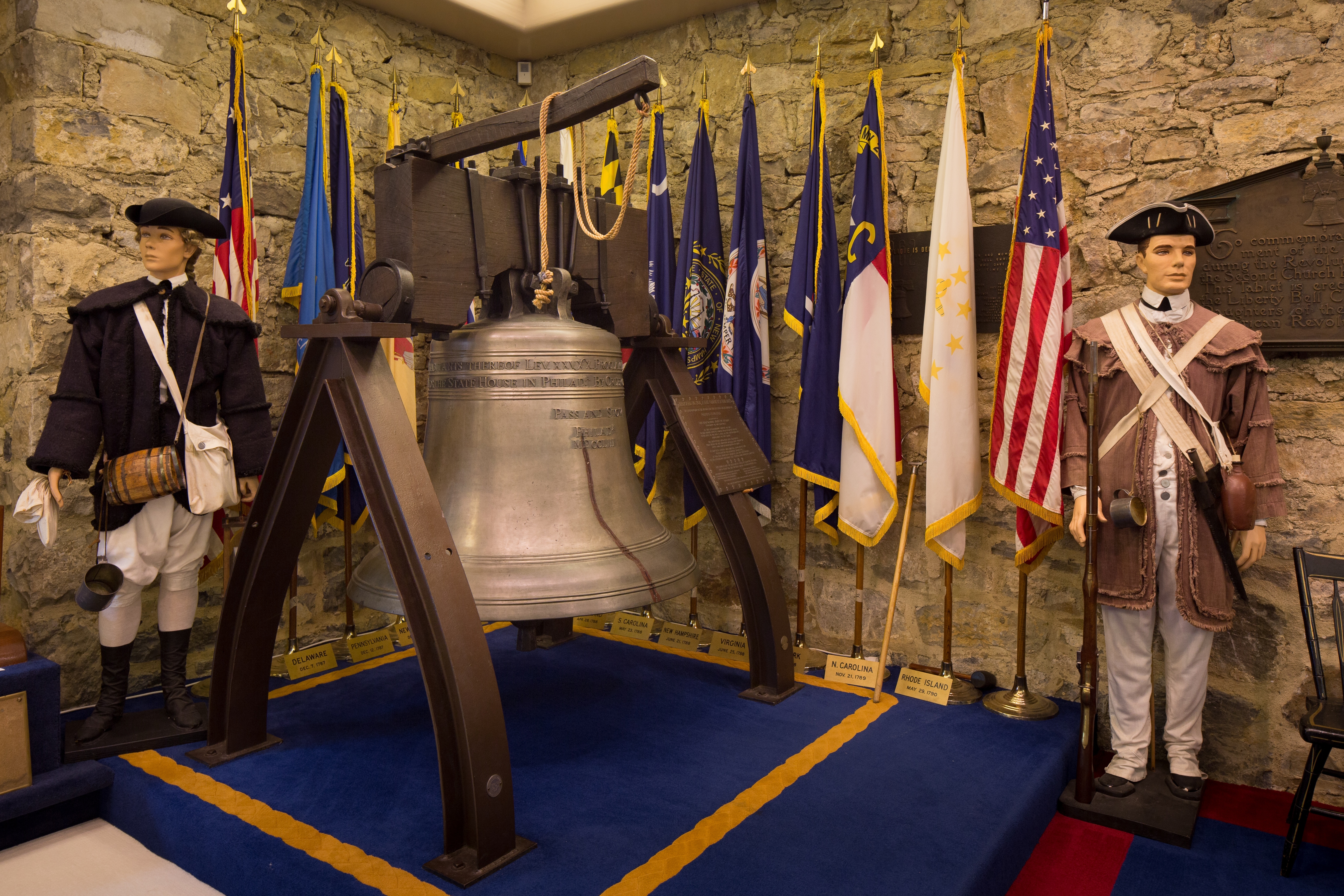
Ontelaunee Park
(7344 Kings Hwy, New Tripoli)
Founded by Homer Nathan Snyder in 1929, the park operated until 1966. Today, it’s home to historic buildings, soccer fields, pavilions, walking trails, and the annual Pioneer Apple Fest. Highlights include the 1740s Zeisloff Log Cabin (moved here in 2001), a restored Ontelaunee Park Train and replica Tripoli station, and a reconstruction of Fort Everett honoring the pioneers who shaped the region.
Trout Hall
(414 Walnut Street, Allentown)
Built between 1768 and 1770, Trout Hall was the summer home of James Allen, son of William Allen, the founder of Allentown.
During the American Revolution, the area saw militia drills, passing Continental Army wagons, and even an attack on Allen’s family. After leaving in 1778 for safety, Allen died the same year. Over time, Trout Hall served as a residence, a seminary, Muhlenberg College’s first campus, and now stands as the headquarters of the Lehigh County Historical Society.
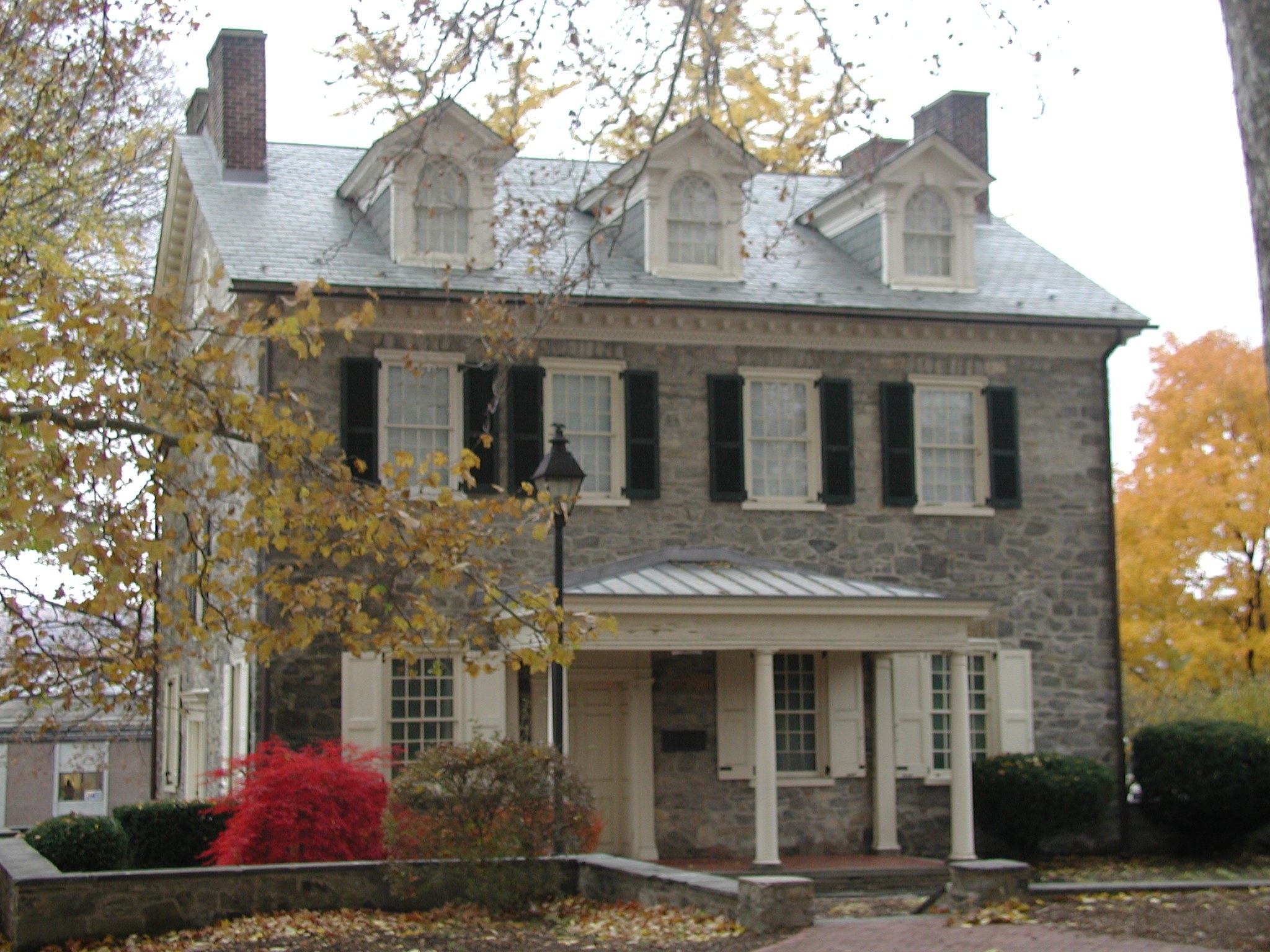
Saylor Park Industrial Museum
(245 N. Second Street, Coplay)
Built in 1893 to produce the cement that helped build modern America, these 90-foot vertical kilns revolutionized production, making Lehigh County the heart of the Portland cement industry, fueling the creation of bridges, subways, and skyscrapers across the nation.
Now a 2.6-acre open-air museum on the National Register of Historic Places, the site is operated year-round through a partnership between Lehigh County and the Lehigh County Historical Society.
Lehigh Valley Zoo and Trexler Nature Reserve
(5150 Game Preserve Rd, Schnecksville)
Founded in 1906 by General Harry C. Trexler, a local industrialist, the Trexler Nature Preserve has played a significant role in saving the North American bison from extinction by providing a place where both bison and elk could roam freely undisturbed. In 1935, the County of Lehigh took ownership of the Preserve, and, in 1974, construction began on the Preserve’s 29-acre Zoo. In 2004, Lehigh Valley Zoological Society assumed management of the Zoo, as well as the daily management of the bison and elk herds in the 1,100-acre Trexler Nature Preserve.
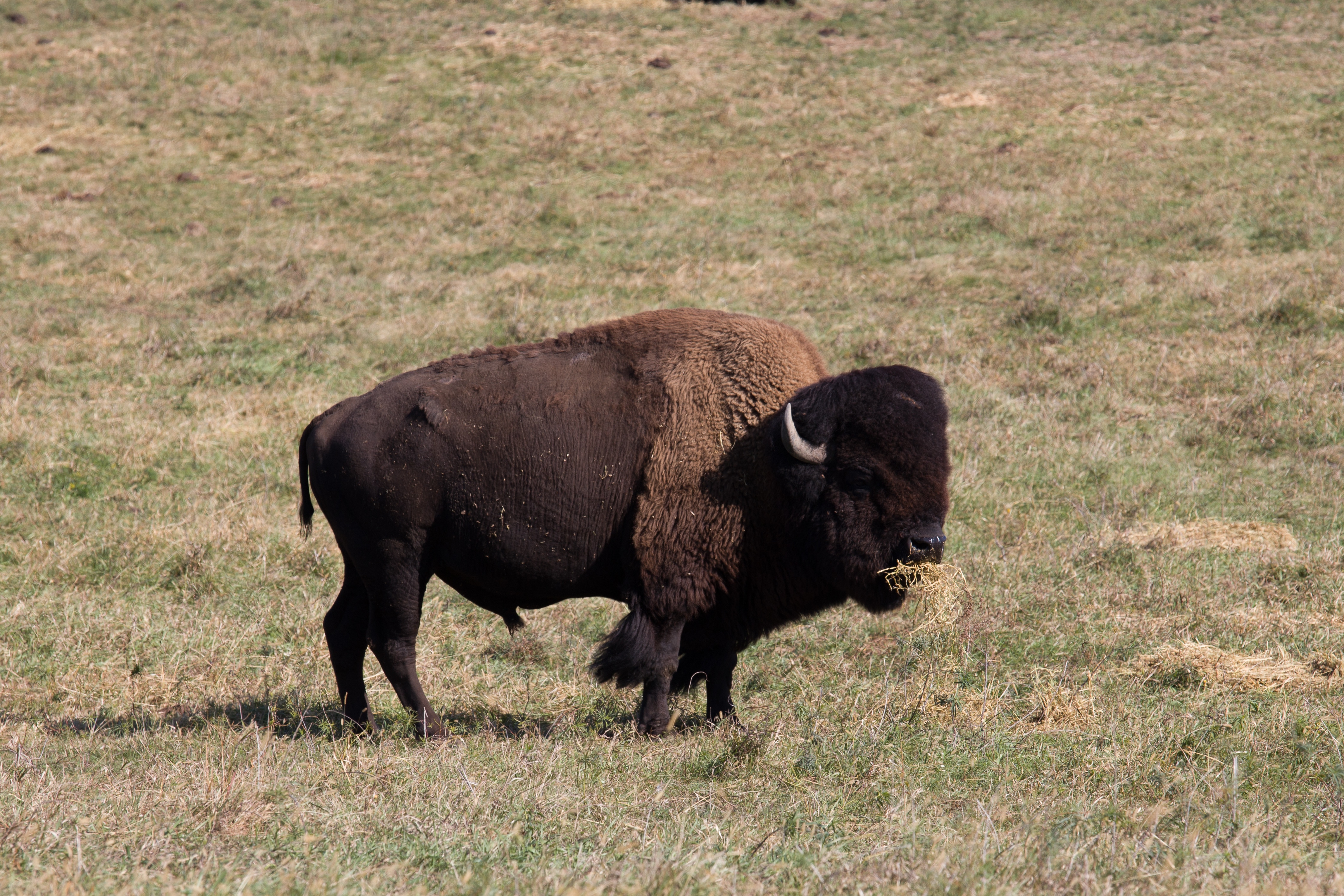
Historic Troxell-Steckel Farm Museum
(4229 Reliance St, Whitehall Township)
Built in 1756 by Johannes Peter Troxell, the Troxell-Steckel House is a fieldstone farmhouse that once stood on the Pennsylvania frontier, where attacks by Native Americans were a real threat. Its location along Coplay Creek and a natural spring made it ideal for farming, with a springhouse used for fresh water and food storage.
Once among the largest homes on the frontier, it was later sold to farmer Peter Steckel, who continued its agricultural legacy. The property remained a working farm until the early 1900s. Since 1942, the Lehigh County Historical Society has preserved the homestead, offering public and school tours that bring local history to life.
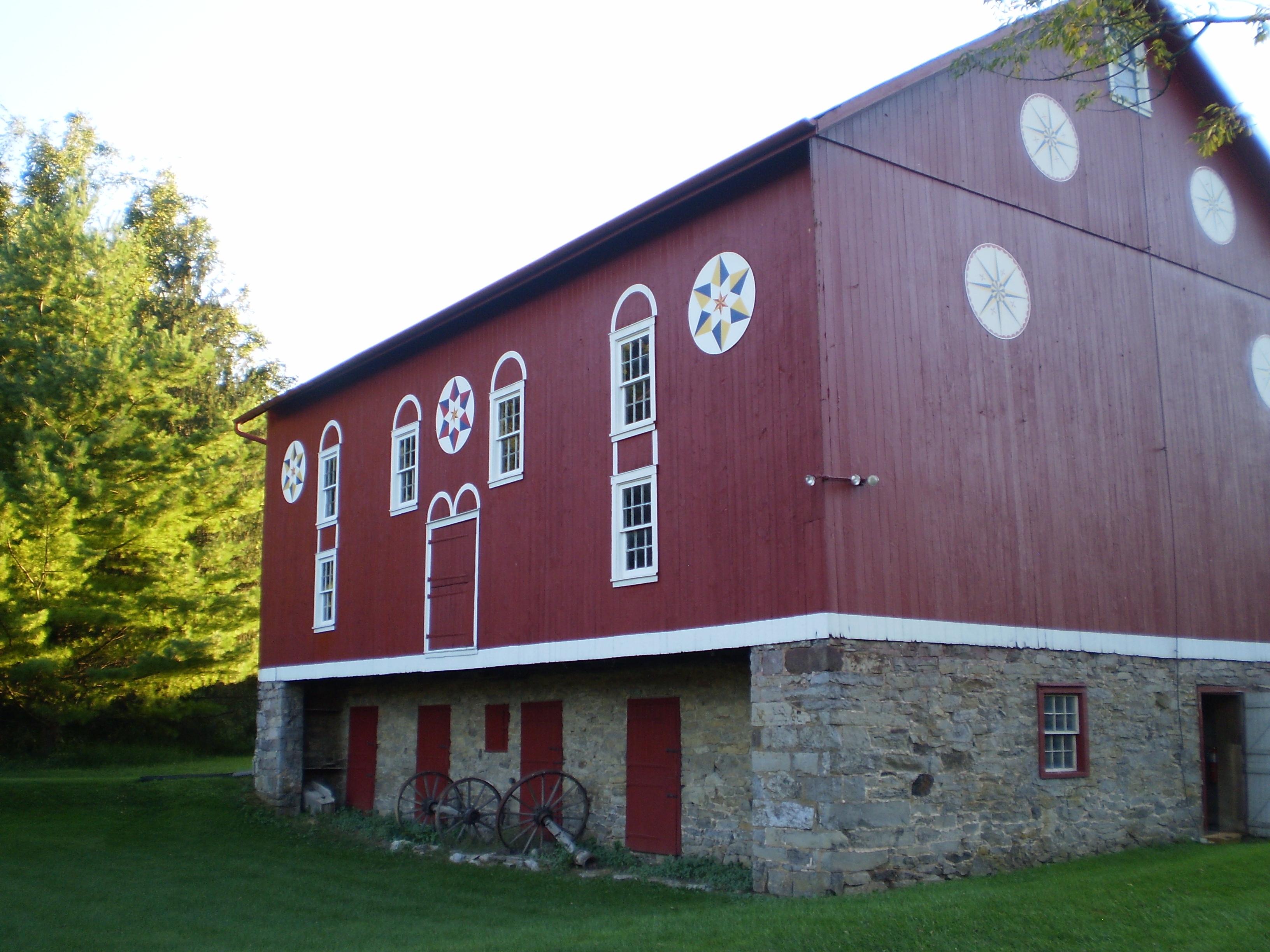
Knauss Homestead
(152 E Main St., Emmaus)
The Knauss Homestead is a revolutionary journey into Lehigh Valley History. Built in 1777 by Heinrich Knauss for his Father, Sebastian Knauss, the Knauss Homestead is a living tribute to the founding of the Moravian community of Emmaus, as well as the United States of America during the Revolutionary War era.
Coca-Cola Park
(1050 IronPigs Way, Allentown)
Since opening in 2008, Coca-Cola Park has been home to the Lehigh Valley IronPigs and a hub for community events and special gatherings. The ballpark has welcomed over 9.5 million fans, averaging 8,503 per game, exceeding its 8,089-seat capacity with 258 sellouts across 655 sold-out games.
Recognized as one of the most innovative venues in professional sports, Coca-Cola Park has earned numerous honors, including Ballpark Digest’s Ballpark of the Year and GameOps.com’s Best Game Operations and Presentation awards.
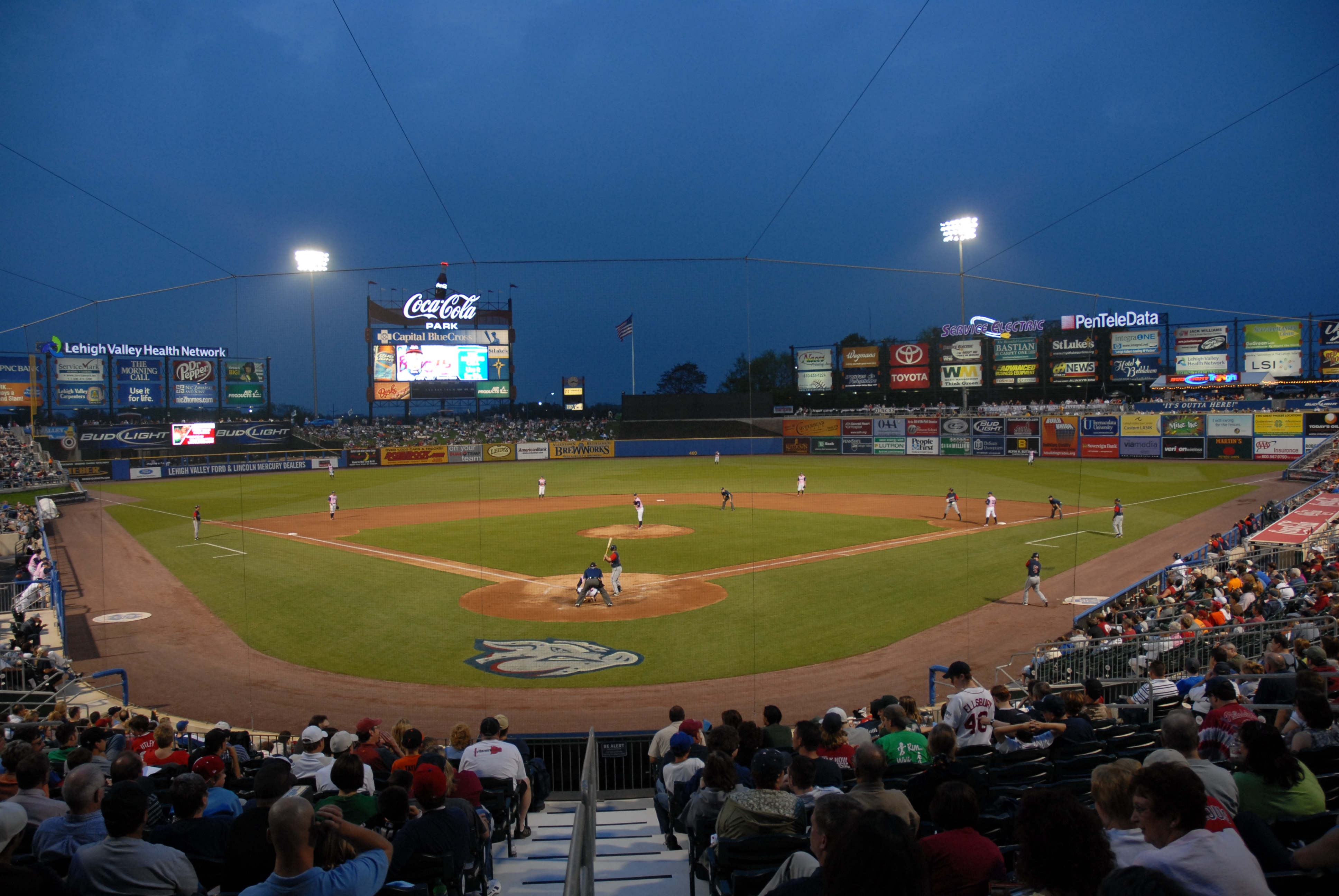
Gross Memorial Rose Garden
(2700 Pkwy Blvd., Allentown)
The garden bears the name of Malcolm W. Gross, a former Allentown mayor whose vision brought this urban oasis to life. Completed in 1931 and rededicated in June 1947, the garden fulfilled Gross's dream of creating a space in the heart of the city where people could enjoy a variety of roses.
Today, the garden continues this legacy as one of the jewels in Allentown's park system. The well-maintained grounds reflect the city's dedication to preserving this place where anyone can escape the urban bustle and find a moment of tranquility among the blooms.
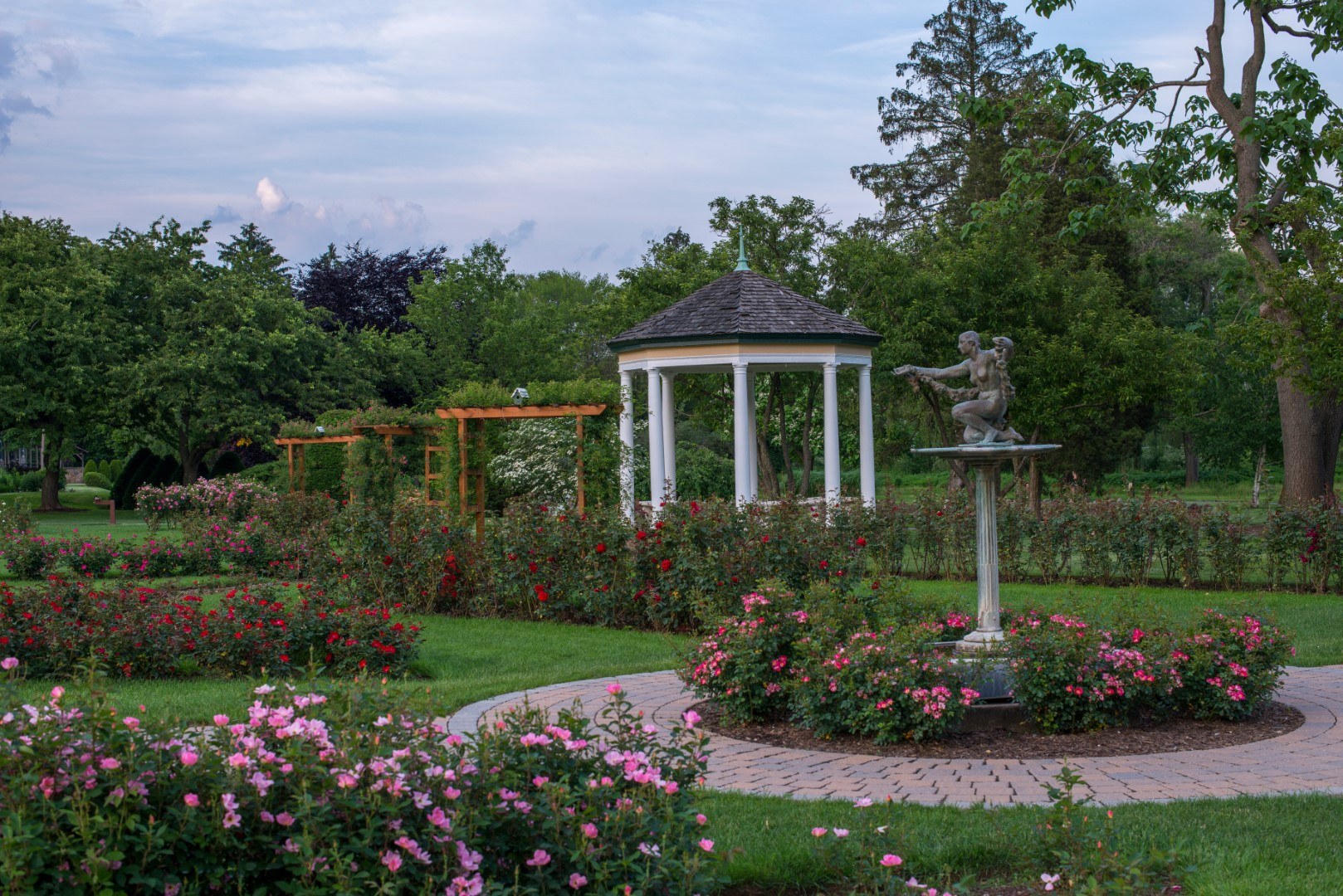
Trexler Memorial Park
(195 Springhouse Rd. Allentown)
Harry C. Trexler, a visionary entrepreneur, statesman, and industrialist, left a lasting mark on eastern Pennsylvania. Known for building major corporations while serving his community, Trexler was one of the state’s wealthiest men and the founder of Allentown’s park system.
Trexler Memorial Park, his enduring legacy, spans over 400 acres of lush greenery, trails, ponds, and wildlife in Allentown. This scenic park offers peaceful walks, biking and hiking paths, picnic areas, and playgrounds. A haven for families and nature lovers alike, it remains a shining example of Trexler’s commitment to preserving natural beauty for future generations.
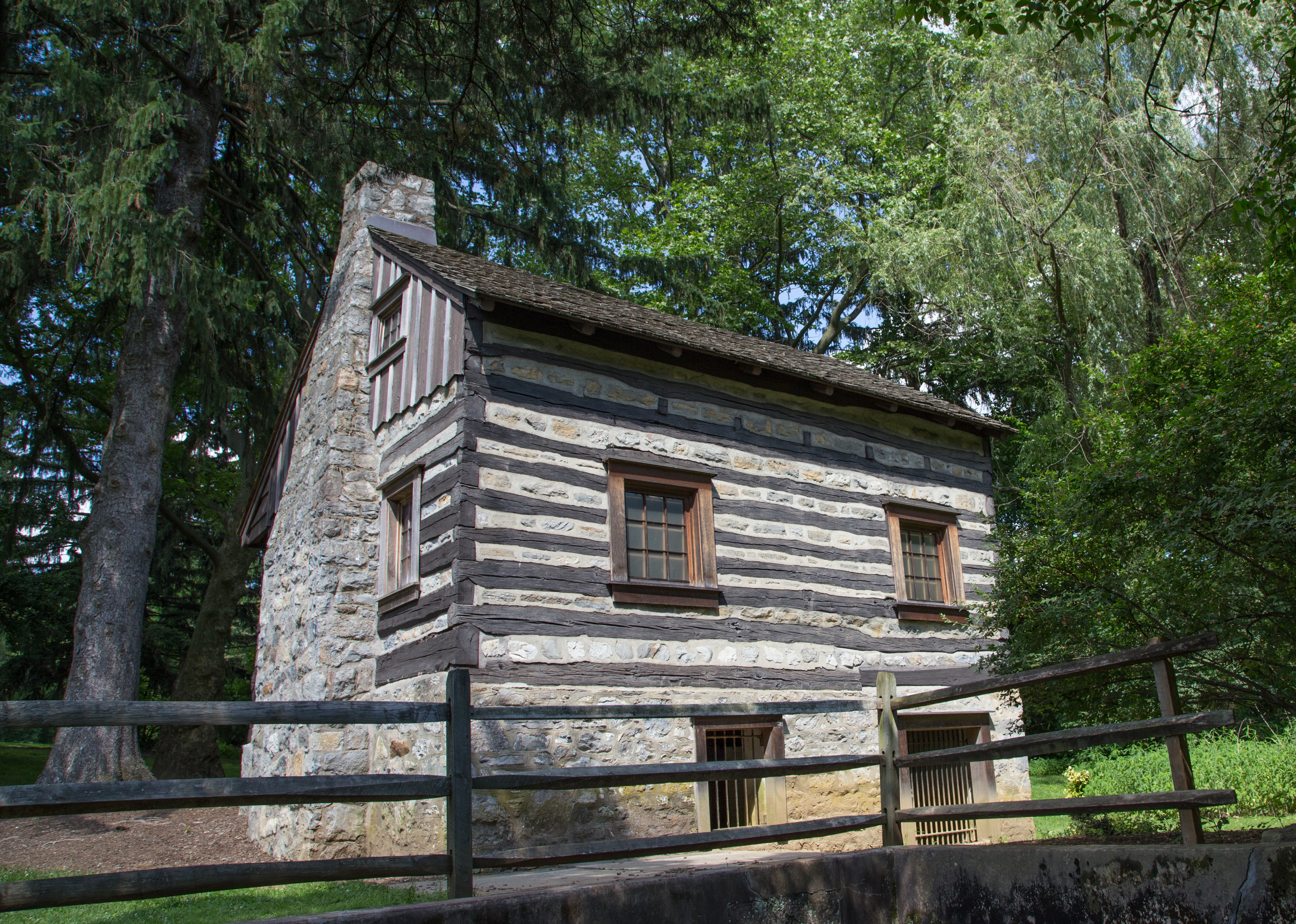
Da Vinci Science Center
(Da Vinci Science Center at PPL Pavilion, 815 W. Hamilton Street, Allentown)
The Da Vinci Science Center, a national award-winning leader in STEM education, traces its roots to 1989 when explorer Bob Ballard invited Lehigh University to host his interactive JASON Project expeditions. With support from local organizations, Lehigh launched the SMART Center in 1992 to bring hands-on science learning to students and teachers.
By 1999, the center became an independent nonprofit, growing its reputation for innovative STEM education. In 2003, it merged with Leonardo da Vinci’s Horse, Inc., adopting its current name—the Da Vinci Science Center. Today, it continues to inspire curiosity and creativity by connecting science, technology, engineering, and math with the arts and the inventive spirit of Leonardo da Vinci.
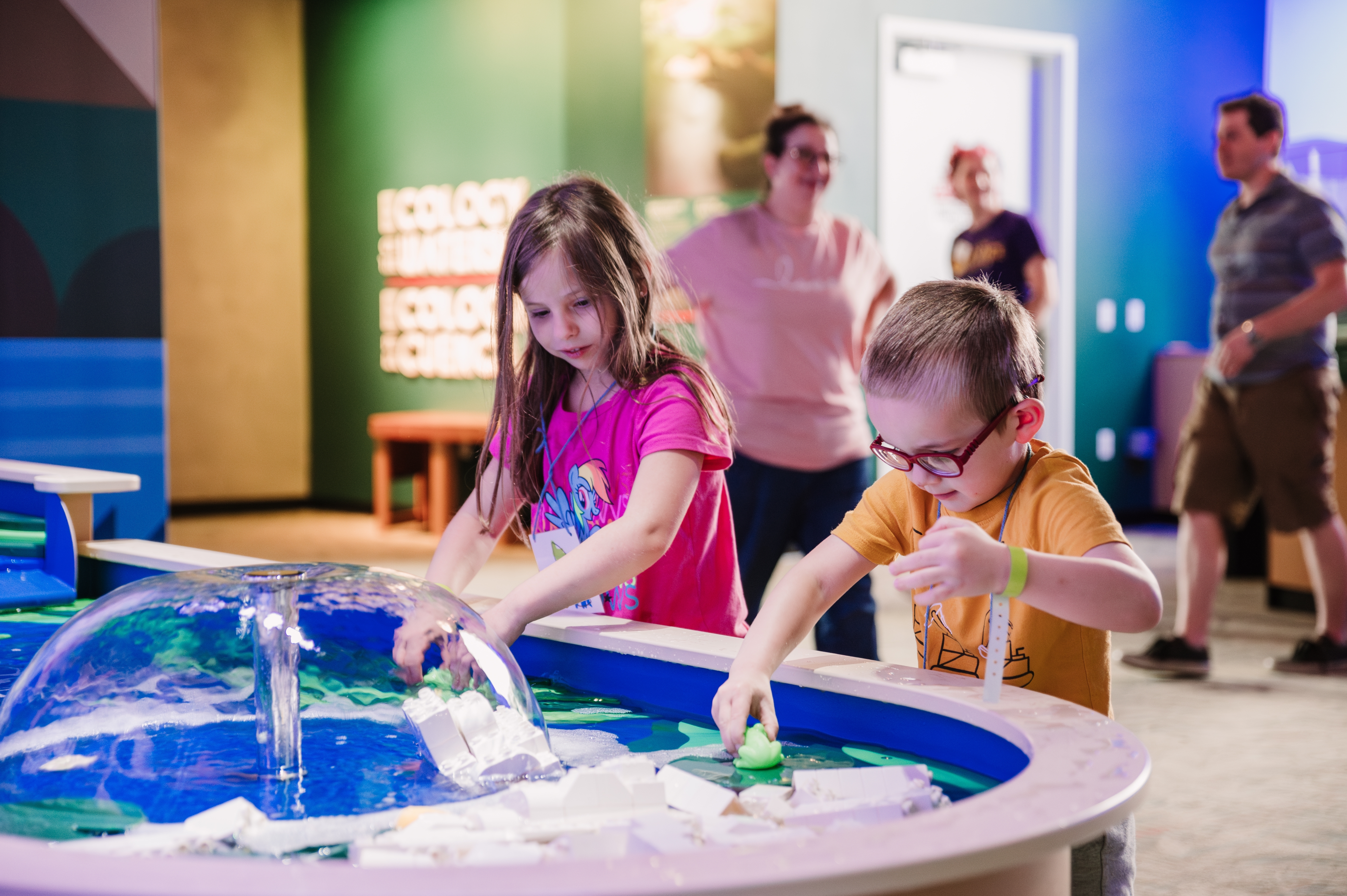
The 1803 House
(55 S Keystone Ave, Emmaus)
Son of Jacob Ehrenhardt Sr., one of the founders of Emmaus, built the 1803 house at the age of 43.
Jacob, Jr. was known as a Revolutionary War soldier, a shoemaker, and a builder. He saw Emmaus grow from 92 residents in 1804 to approximately 130 at the time of his death in 1825. Because he went against the teaching of the Moravian faith, he was buried in God’s Acre, unrecorded and forgotten as a war hero.
It wasn’t until the early 1930s that the Liberty Bell Chapter of Daughters of the American Revolution found his name and the names of 11 men who serviced from Emmaus. They are now marked with the American flags in addition to a modest gravestone in the church cemetery. The 1803 House offers tours by appointment only for families, groups, or individuals. Each tour is given by 1803 House Board members.
Shelter House
(601 S. 4th St., Emmaus)
Built in 1734, the Shelter House is one of the oldest continuously inhabited log structures in Lehigh Valley. The two-story, eight-room colonial Germanic cabin sits on the northern slope of South Mountain and is listed on both the State and National Registers of Historic Places. Originally a simple oak and chestnut log home with no foundation, the structure reflected early “continental log house” design, featuring a narrow kitchen, a central stove room, and an adjoining bedroom. Today, the Shelter House stands as a beautifully restored glimpse into 18th-century frontier life.
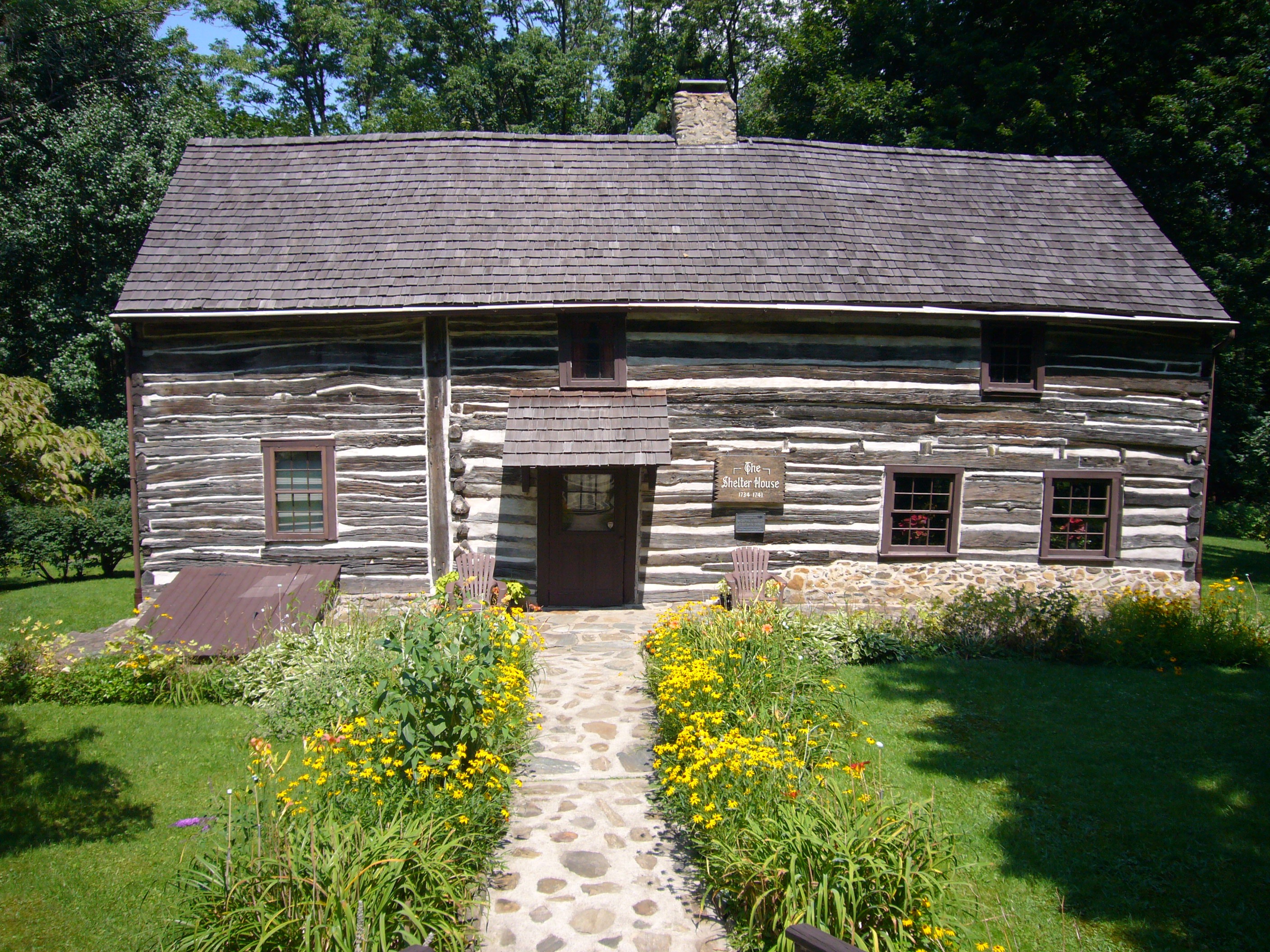
Historic Lehigh County Courthouse
(501 W. Hamilton St., Allentown)
Before Lehigh County's courthouse opened in 1817, court proceedings took place in a hotel and then in the jail once it was completed. Since the city's founding in 1762, Allentown has attracted numerous historical figures, including Booker T. Washington, Theodore Roosevelt, and several other U.S. Presidents.
Among the greatest historical figures and orators to address an audience in Allentown was Frederick Douglass. A friend of Abraham Lincoln’s and a leading abolitionist in American history, Douglass was also a major advocate for women’s rights. Douglass spoke in Allentown on the evening of April 8, 1870, at the Historic Lehigh County Courthouse in the “Gold Courtroom” to a capacity crowd, all of whom paid admission for the privilege of listening to a man who was an international icon. That courtroom, which is still in existence, looks much as it did when Douglass delivered his speech 150 years ago.
Lockridge Park and Furnace Museum
(525 Franklin St., Alburtis)
Built in 1868, the towering coal-fired Lock Ridge Furnace played a vital role in America’s transformation from an agricultural nation to an industrial powerhouse. Operating until 1921, it now stands as one of Lehigh County’s most striking reminders of its industrial heritage. Acquired by the county in 1972 and added to the National Register of Historic Places in 1981, the site anchors a 59-acre park where the furnace’s stone walls rise like a castle. Their beauty and that of the surrounding buildings belie the site’s rugged past, when these structures powered the region’s booming iron industry.
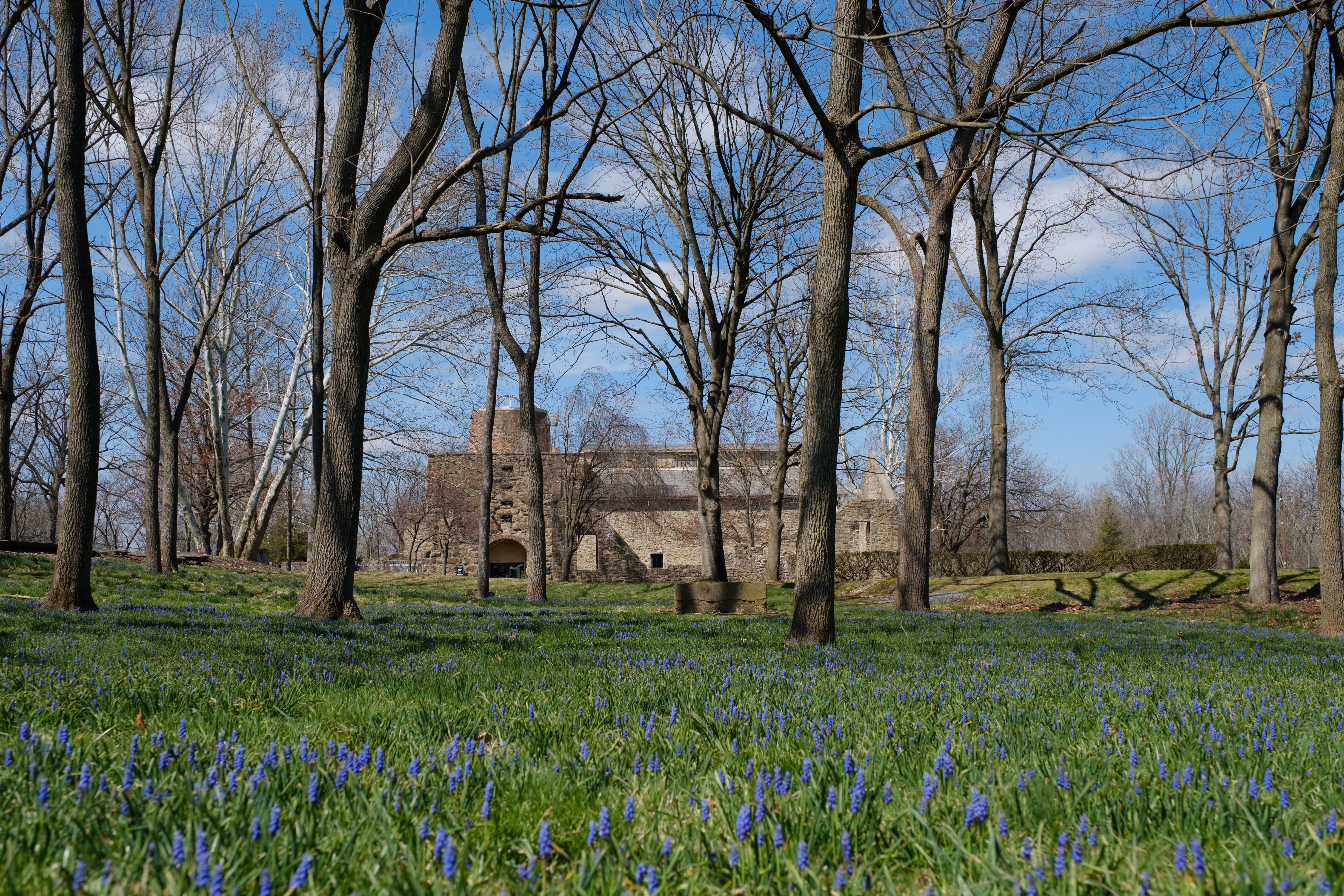
Museum of Indian Culture
(2825 Fish Hatchery Road, Allentown)
Founded in 1980, the Museum of Indian Culture began as the Lenni Lenape Historical Society but expanded its mission in 2005 to highlight Native American cultures from across the Western Hemisphere. As Pennsylvania’s oldest exclusively Native American museum, it was established by local enthusiasts dedicated to bringing meaningful cultural education to the Lehigh Valley.
In 2020, the museum deepened its roots by partnering with the Delaware Nation of Oklahoma, opening an extension of their Historic Preservation Office on-site. Today, the museum is a vibrant center for Native American research and education, offering weekend tours, school and community outreach, annual festivals, workshops, and lectures, as well as participating in local celebrations. The museum is housed in a restored 1796 limestone farmhouse built by the Bieber family, early French-German settlers in the region. The family owned the property until the early 20th century, when General Harry C. Trexler acquired it and later gifted it to the City of Allentown. The land eventually became part of the Little Lehigh Parkway, adding historical depth to this cultural landmark.
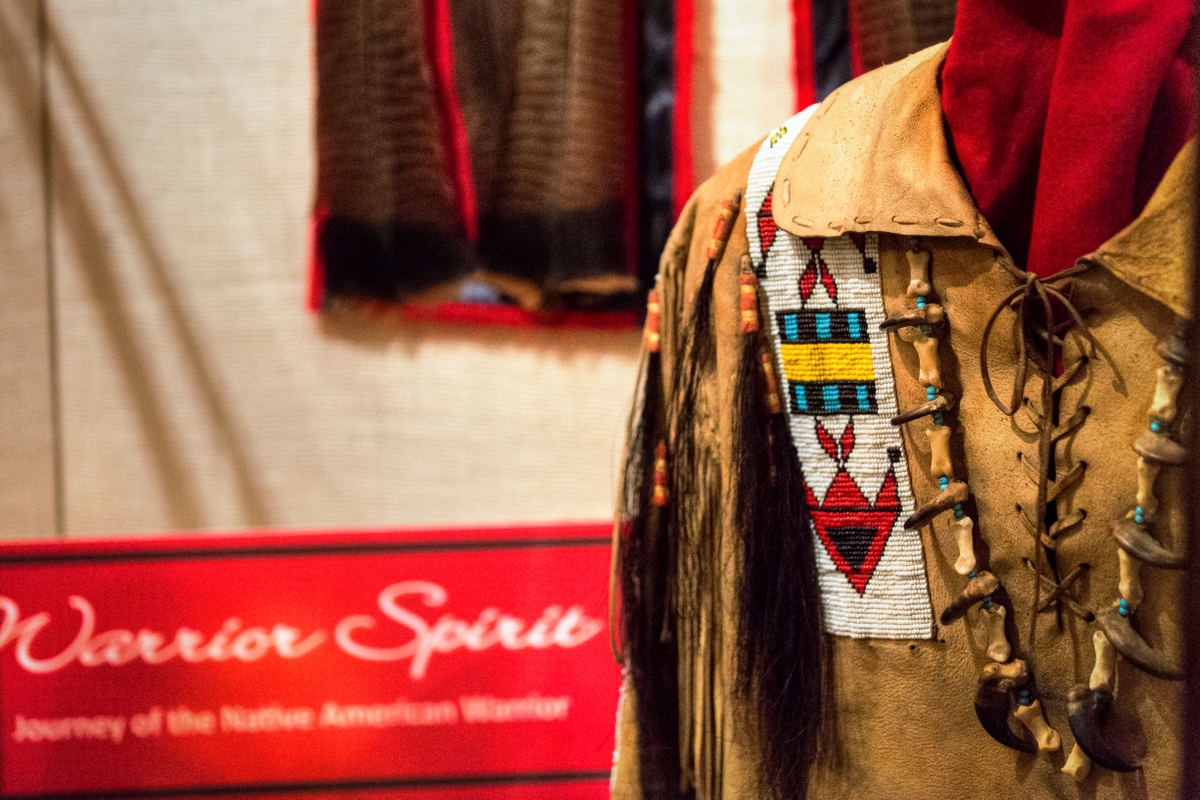
America on Wheels
(5 N Front St., Allentown)
America On Wheels showcases a profound, educational, and immersive tribute to America’s unique role in the evolution of the automobile and transportation in modern culture, to inspire and inform an enthusiastically mobile future. The museum features over 23,000 square feet of exhibit space with three main galleries, rotating exhibits, the HubCap Cafe, and a vehicle art gallery. The museum’s collection features over 75 bicycles, motorcycles, automobiles, and trucks that tell the story of people and products on the move from the days of the carriage to the vehicles of tomorrow. The museum hosts special exhibitions several times a year as well as a popular series of events, and houses the archives of Mack Trucks.
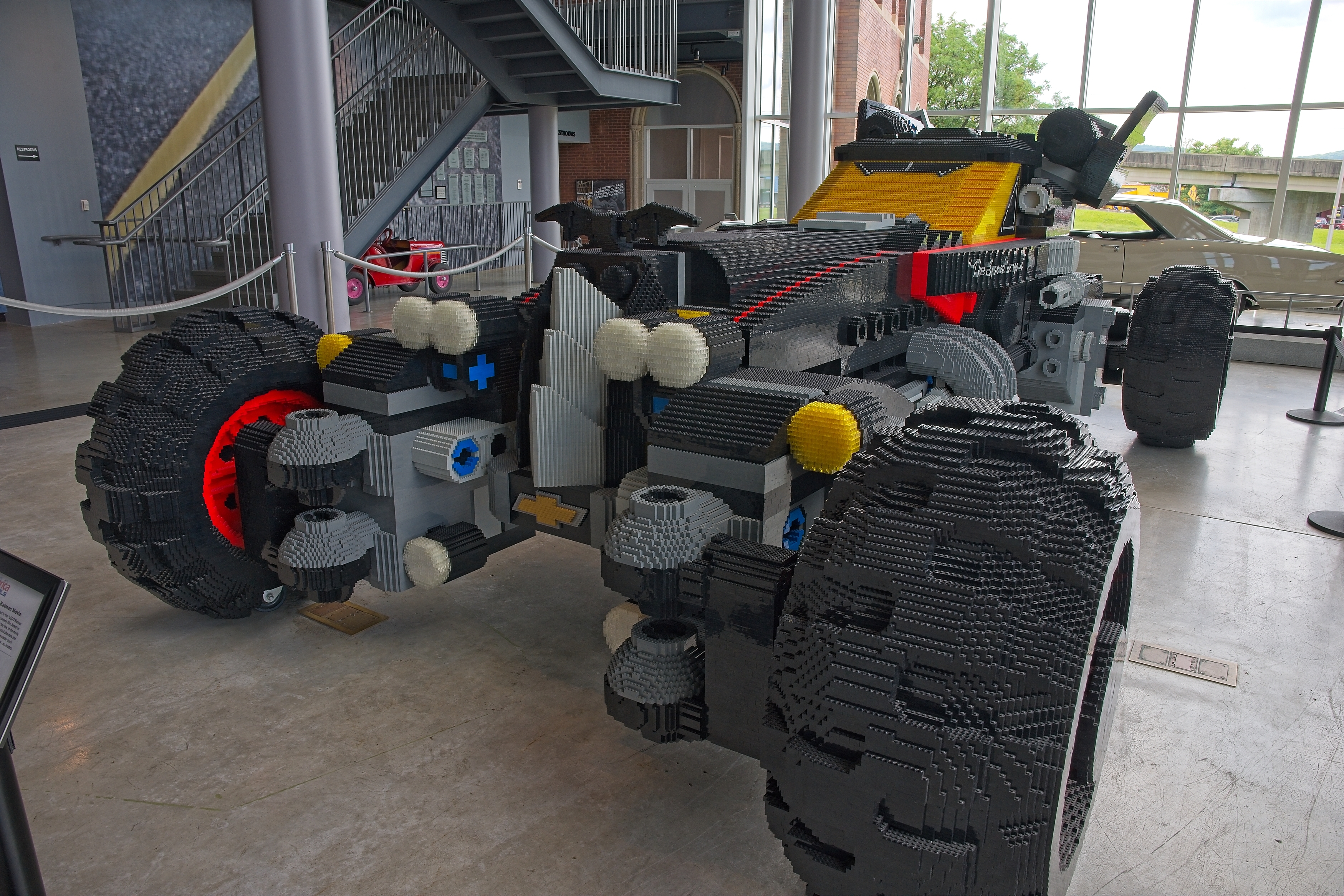
Allentown Fair Grounds
(302 N 17th St., Allentown)
On a snowy day in 1852, community leaders gathered in the village of Egypt, Whitehall Township, to form the Lehigh County Agricultural Society—a nonprofit dedicated to celebrating the achievements of local farmers, gardeners, and homemakers. Their annual exposition soon became The Great Allentown Fair, now ranked among North America’s Top 50 fairs and enjoyed by millions across three centuries.
After its early success on a small Allentown lot, the fair moved twice to accommodate growing crowds, eventually settling in its current 46-acre home west of 17th Street. The fairgrounds have a rich history of their own—serving as a World War I training site for more than 20,000 Army Ambulance Corps troops from 1917 to 1919.
Today, the Allentown Fairgrounds hosts some of the region’s favorite destinations, including the Agri~Plex, Fairgrounds Farmers Market, Ritz Barbecue, and Fairgrounds Hotel, along with the fair itself.
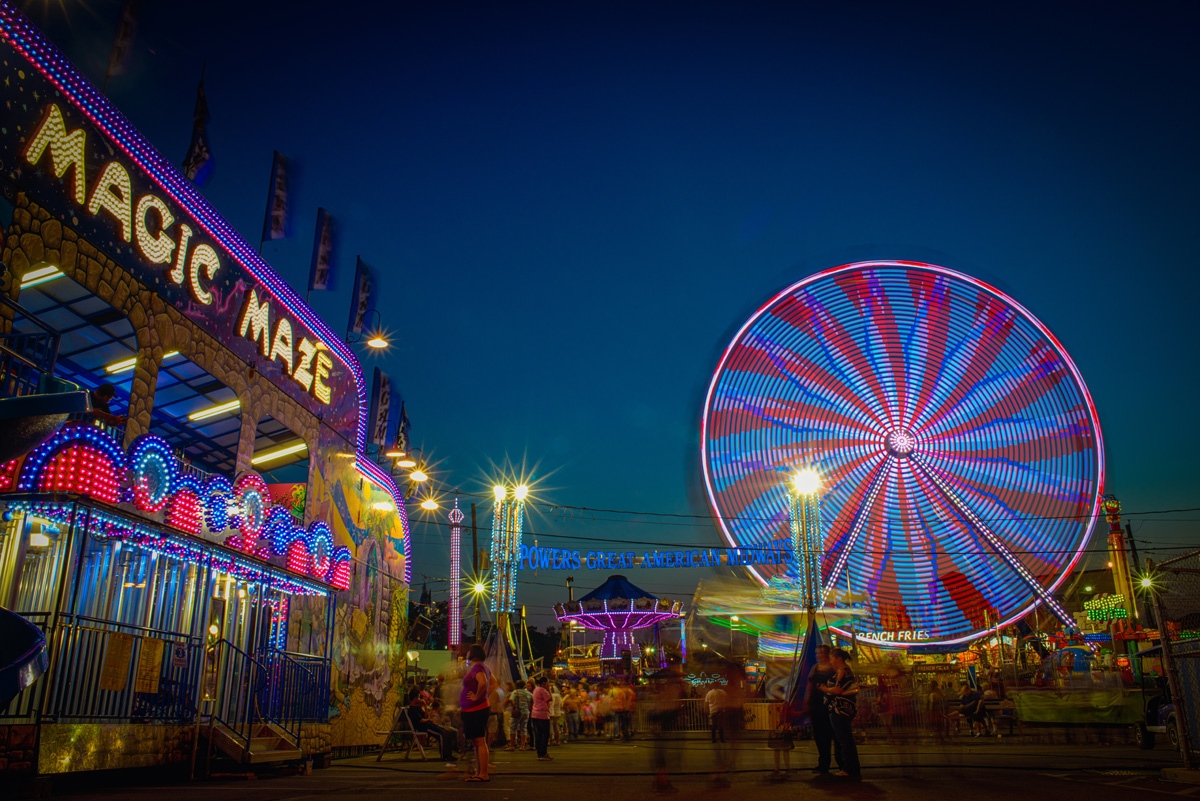
Leaser Lake
(8502 Pleasure Court, New Tripoli)
This 540-acre park is owned in part by the Pennsylvania Fish and Boat Commission and in part by Lehigh County. It is named after Frederick Leaser, an American patriot who transported the Liberty Bell from Philadelphia to Allentown in 1777 for protection during the Revolutionary War. His home was in the area that is currently Lynn Township. Leaser Lake was built by the PA Fish and Boat Commission for water-oriented recreation and opened for public use in 1971. Lehigh County leases this area from the state and operates and maintains the park. The land north of the lake was purchased by the county in the early 1970s. It is entirely wooded and is used for nature study and as an addition to the State Game Lands No. 217. The 117-acre lake provides fishing from boats or shore. Sailboats up to 17 feet and small electric motors are permitted. Swimming and bathing are prohibited. A 4-mile trail around the lake provides beautiful views and nature study, as well as seasonal hiking and cross-country skiing opportunities. Hunting is permitted in designated areas per PA Game Commission regulations.
Activity centers are located on the east, west, and north sides of the lake. Each area has a parking lot. The north and east side parking lots have boat launch ramps. All three areas have restrooms, picnic tables, and benches. The north end is the main picnic area and has over 50 tables, most of which are shaded by trees. The Leaser Lake Heritage Foundation is a valued partner in improving the recreational opportunities in the park and preserving the surrounding natural environment.

